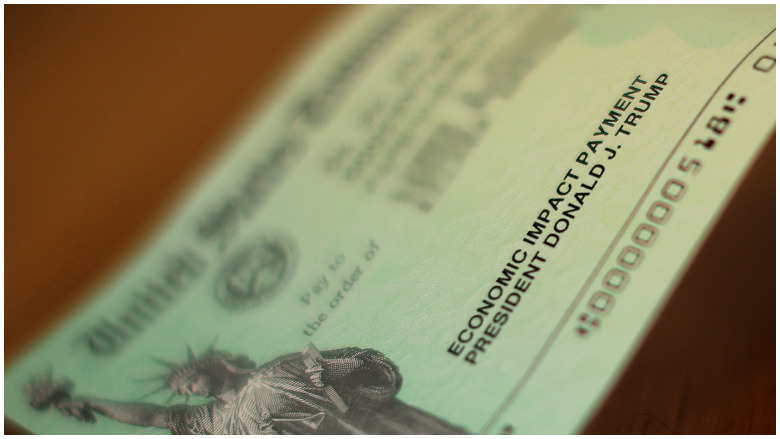
Getty What's the status on a second stimulus check?
Will fewer people receive a stimulus check this go around?
On Thursday, Treasury Secretary Steve Mnuchin confirmed the details of the upcoming stimulus check. The second round of payments will be for the same amount as the first round, and the cap for income eligibility will also be the same as the first round. This means that those who make under $75,000 will receive $1,200 and that amount will phase out up to an income of $99,000.
Speaking to The Hill on Thursday, Mnuchin said, “We’re talking about the same provision as last time, so our proposal is the exact same proposal as last time.”
Thus, the same number of people will be receiving checks.
Here’s what you need to know:
There Will Not Be a $40,000 Income Eligibility Cap
Senate Majority Leader Mitch McConnell previously insinuated that another round of payments would have an income cap of around $40,000, which aligned with his goal of making the second round of checks more “targeted.”
Forbes quoted McConnell as stating that while checks could “very well be part” of the next relief bill, “I think the people who have been hit the hardest are people who make about $40,000 a year or less.”
That is no longer the case– instead, it will be the same cutoff point as the first round of stimulus checks.
How Soon Could You Receive the Second Payment?
According to Forbes, it took the CARES Act 13 business days to begin sending out stimulus checks. It’s possible, since the IRS now has all the information it needs after the first send-out, that these checks could be issued even quicker.
As a previous Heavy article points out, if a stimulus package can be signed into law before August 8, then eligible Americans can expect to see that money by the end of August.
Details of the package must be ironed out, and it must be signed by both chambers of Congress and President Donald Trump in order to become law.
If the second stimulus check is structured exactly like the first, then this would give an advance on a refundable tax credit of $1,200 to qualifying Americans, and an additional $500 for dependent children for those under 17.
The following qualify based on adjusted gross income, according to Forbes: single filers who earn less than $75,000 a year will get the full benefit (and those who earn more can expect their check to be reduced 5% of the amount they earn over $75,000); joint-filers earning less than $150,000 will receive the full benefit as well (and those who earn more than $150,000 will see their check reduced by 5% of the amount they earn over $150,000.)
The outlet highlighted the fact that while there seems to be an agreement on the details of direct payments, there are other components of the package that could “stall the negotiations”, like a payroll tax cut, liability shield for businesses and schools, unemployment benefits, and additional financial assistance to state and local governments.
READ NEXT: COVID-19 Stimulus Check: Did the HEROES Act Pass?
